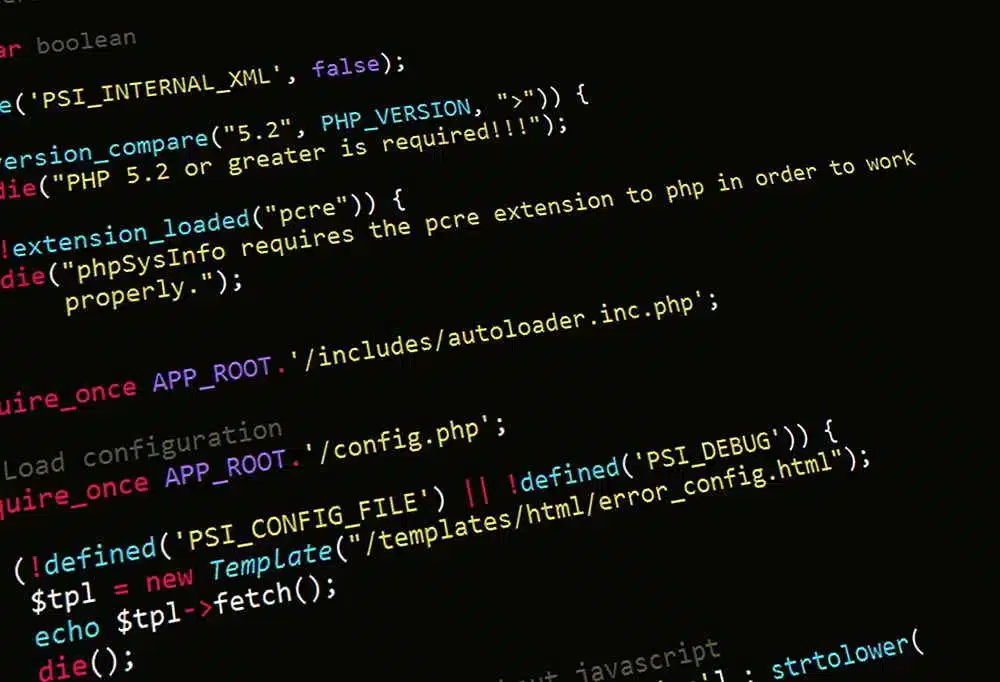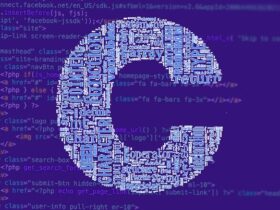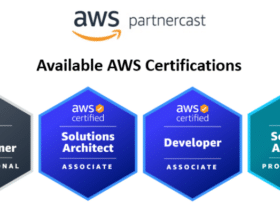Python, created as a hobby project in 1989, has become a top programming language for beginners.
Its user-friendly syntax and vast applications make it an ideal starting point for novice coders.
From its humble origins to its current widespread popularity, Python offers compelling reasons for those looking to enter the world of programming.
Easy to Read and Write
With its clear syntax and straightforward structure, Python stands out as one of the most readable programming languages for beginners. You’ll find that Python’s code closely resembles everyday English, making it easier to understand and write.
The language uses indentation to define code blocks, which creates a visually clean and organized appearance. This structure helps you quickly identify different sections of your program.
Python’s simplicity extends to its naming conventions and built-in functions. You’ll use intuitive names for variables and functions, enhancing code readability. The language also provides a rich set of pre-built functions that perform common tasks, reducing the amount of code you need to write from scratch.
This characteristic allows you to focus on problem-solving rather than getting bogged down in complex syntax. Consequently, you’ll be able to write and understand Python code more easily than many other programming languages.
Versatile and Powerful

Python’s versatility and power make it a Swiss Army knife in the field of programming, capable of tackling a wide range of tasks and projects. You’ll find Python used in web development, data analysis, artificial intelligence, scientific computing, and more.
Its extensive standard library and numerous third-party packages allow you to accomplish complex tasks with minimal code.
Python’s adaptability shines in various fields. For web development, frameworks like Django and Flask simplify the process of creating robust websites. In data science, libraries such as NumPy and Pandas enable efficient data manipulation and analysis. Machine learning devotees benefit from tools like TensorFlow and scikit-learn.
Python’s scripting capabilities make it ideal for automation and system administration tasks. Furthermore, it’s widely used in scientific research, finance, and game development. This versatility ensures that the skills you acquire while learning Python will be applicable across multiple domains.
Large Community and Support
While Python’s versatility is impressive, its thriving community and extensive support network truly set it apart in the programming landscape.
You’ll find a wealth of resources at your fingertips, from online forums and tutorials to detailed documentation. Websites like Stack Overflow and GitHub are bustling with Python advocates ready to help you solve coding challenges.
The Python Package Index (PyPI) offers a broad library of third-party packages, expanding Python’s capabilities and simplifying complex tasks.
You’ll also benefit from regular updates and improvements to the language, thanks to the dedicated Python Software Foundation and countless contributors globally.
This robust ecosystem ensures that you’re never alone in your learning journey, providing answers to your questions and solutions to your problems.
Whether you’re a complete beginner or an experienced developer, Python’s community support will be an invaluable asset throughout your programming career.
Rich Ecosystem of Libraries and Frameworks
Ever wondered what truly sets Python apart from other programming languages? Just focus on its rich ecosystem of libraries and frameworks.
Python’s extensive collection of pre-written code modules covers a wide range of functionalities, from data analysis to web development. You’ll find popular libraries like NumPy for scientific computing, Pandas for data manipulation, and Matplotlib for data visualization.
For web development, frameworks like Django and Flask simplify the process of building robust applications.
This extensive ecosystem means you don’t have to reinvent the wheel for common tasks. Instead, you can leverage existing solutions to accelerate your development process. Many of these libraries are open-source, allowing you to access high-quality code for free.
As a beginner, you’ll appreciate how these resources can help you tackle complex problems more easily, enabling you to focus on learning core programming concepts while building practical projects.
Strong Job Market

Beyond its powerful ecosystem, Python’s popularity translates into a thriving job market for those who master the language.
You’ll find a wide range of career opportunities across various industries, from web development to data science and artificial intelligence. Companies of all sizes are actively seeking Python developers, offering competitive salaries and benefits.
Consider the following table highlighting some popular Python job roles:
| Job Title | Average Salary (USD) | Required Experience |
|---|---|---|
| Junior Developer | 60,000 – 80,000 | 0-2 years |
| Data Analyst | 70,000 – 90,000 | 1-3 years |
| Machine Learning Engineer | 100,000 – 150,000 | 3-5 years |
As you can see, Python skills can lead to lucrative career paths. Moreover, the demand for Python professionals continues to grow, ensuring long-term job security. By learning Python, you’re not just acquiring a programming language; you’re investing in a skill that can greatly enhance your employability and earning potential.
Conclusion
Python’s simplicity and power make it an ideal starting point for beginners. While other languages may intimidate newcomers with complex syntax, Python’s clear structure allows you to focus on problem-solving.
You’ll find a wealth of resources, libraries, and job opportunities in the Python ecosystem. As you progress, you’ll appreciate Python’s versatility across various domains.
Whether you’re aiming for web development, data science, or artificial intelligence, Python provides a solid foundation for your programming journey.


















